Can 'fake meat' really replace a burger?
- Published
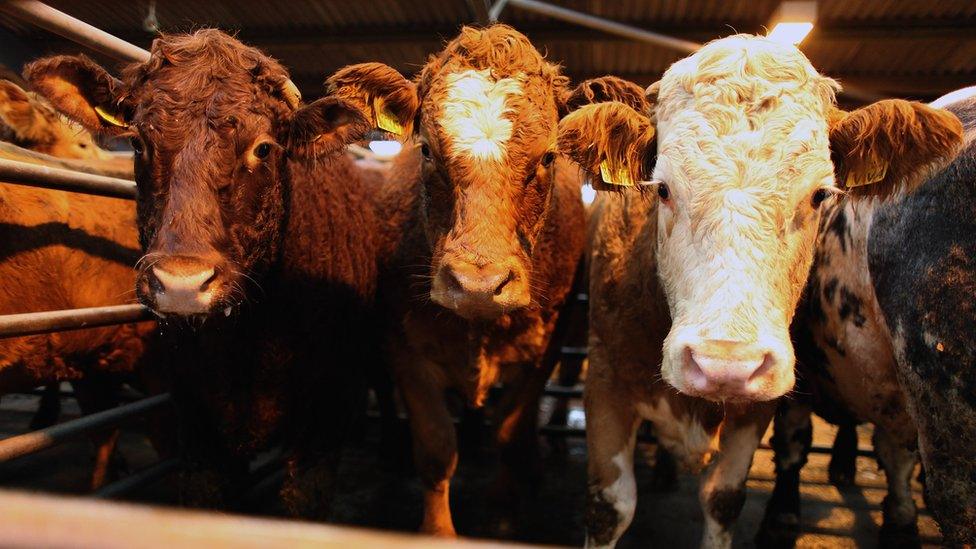
If you're one of the 58,000 people who signed up to Veganuary, give yourself a pat on the back: your month of no meat is nearly at an end.
The challenge began in 2014 and marks a rise in year-round veganism in the UK.
However for the vegans who still miss the taste of meat, there is a tempting option that doesn't mean breaking the rules: "fake meat".
But what is fake meat really made of? And can plant proteins really replicate the taste of steak or a burger?
We decided to delve under the lettuce leaf to find out what lies beneath.
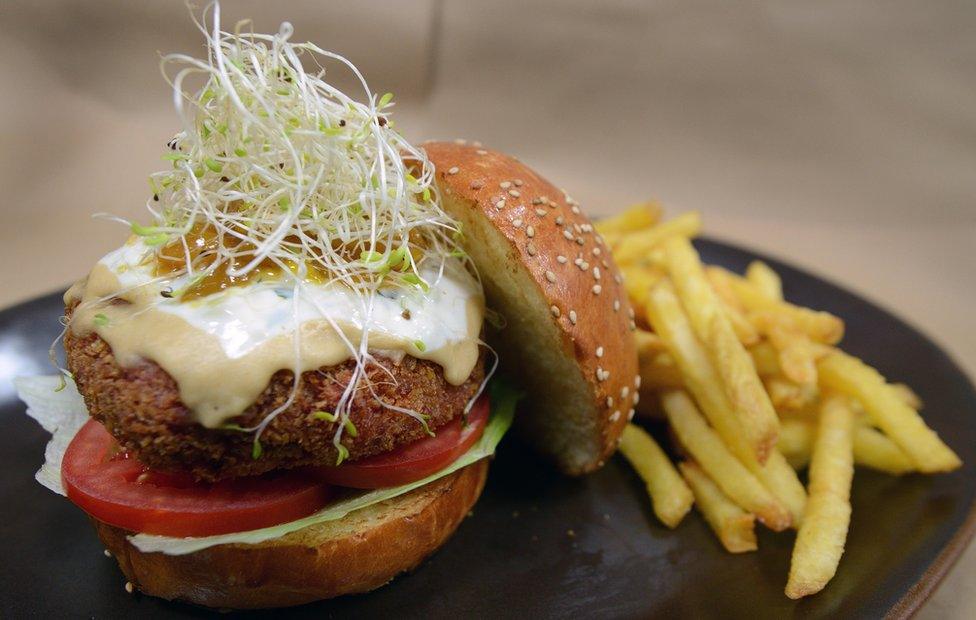
A meat-free burger
Why would anyone want to eat 'fake meat'?
When Temple of Seitan opened in Hackney earlier this year, the queues stretched around the block and some very happy customers posted five star ratings online., external
The twist? The fried "chicken" is in fact seitan, a wheat protein that looks - and apparently tastes - remarkably like fried chicken.
The success of Temple of Seitan and other fake meat products, like vegan burgers, prove that there is a demand for these products.
One reason for the popularity is a greater awareness about our health: 29% of people have reduced the amount of meat they eat, according to the 2016 British Social Attitudes Survey, which implies that warnings about the negative impact of meat eating have filtered through to the public.
But whether people will eat it or not really comes down to taste, rather than healthy choices, says Joseph D. Puglisi, a Stanford University professor of structural biology who is working on meat alternatives.
"The idea is to make a product that meat eaters would enjoy," he tells Newsbeat. "The most important thing is, 'does this taste good'?"
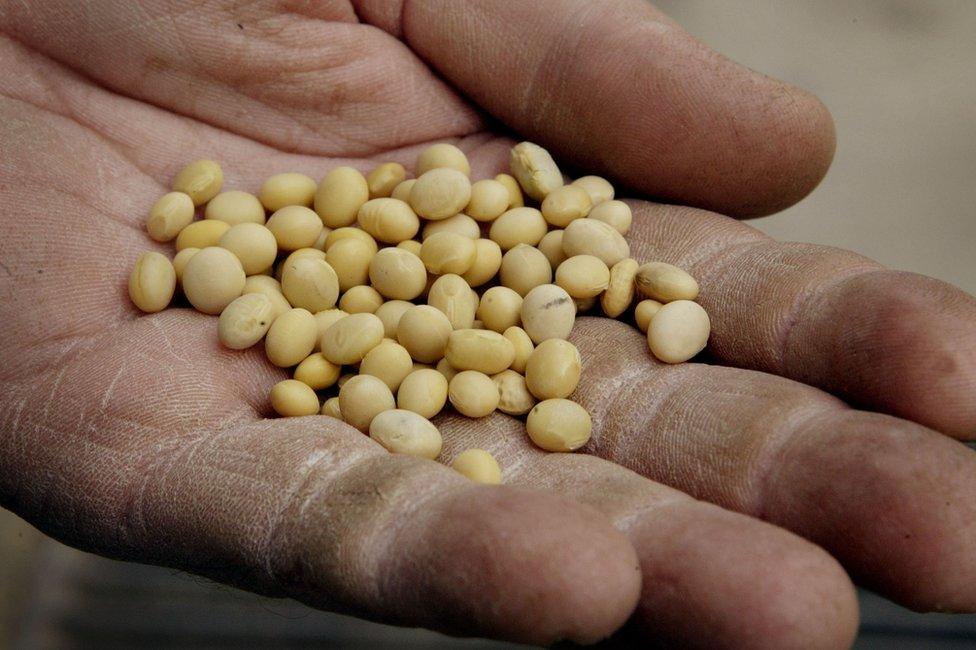
Raw soy beans
What is it actually made from?
Plant protein products are normally made from soy beans, peas, wheat, or a mixture of these.
Other products such as Quorn are made from a type of fungus.
Fat is added - normally oils that are high in unsaturated fat - which can help protect the heart and lower blood pressure.
And manufacturers often add iron, which makes the red blood cells that help carry blood around your body.
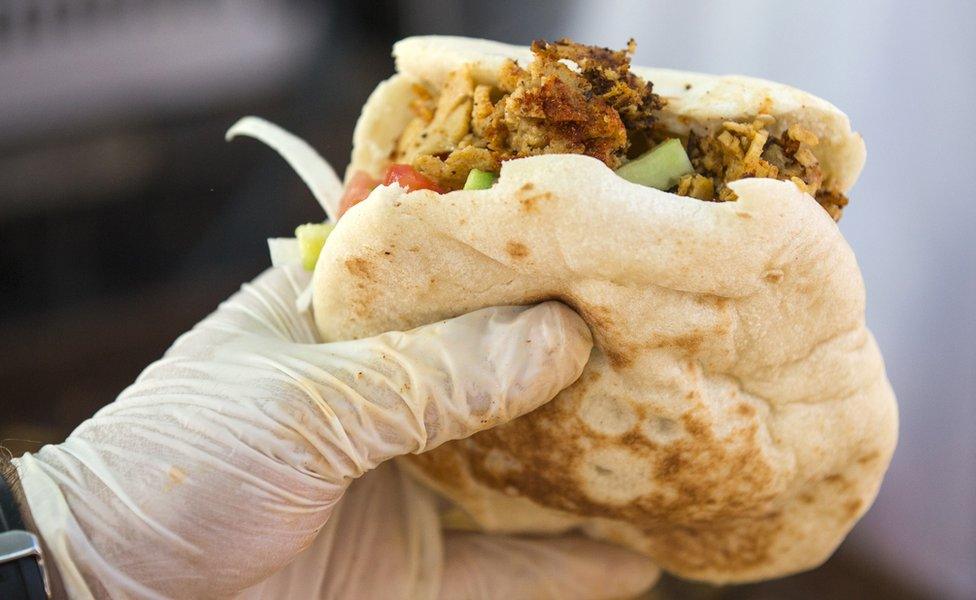
A vegan kebab made with seitan, a type of wheat protein
Creating texture
How do you make plant proteins taste more like meat? You have to change the structure.
"Plant proteins in seeds or beans - they're meant to store things. But animal proteins, they're to transport [animals] around, so they have very different functions," said Prof Puglisi.
"Because of that they have very different shapes."
So manufacturers try to re-create the look - and therefore the taste - of myoglobin, a protein in muscle cells.
Heating the mixture to different temperatures will change the texture, from the loose structure of a burger to a tighter chicken-like one.
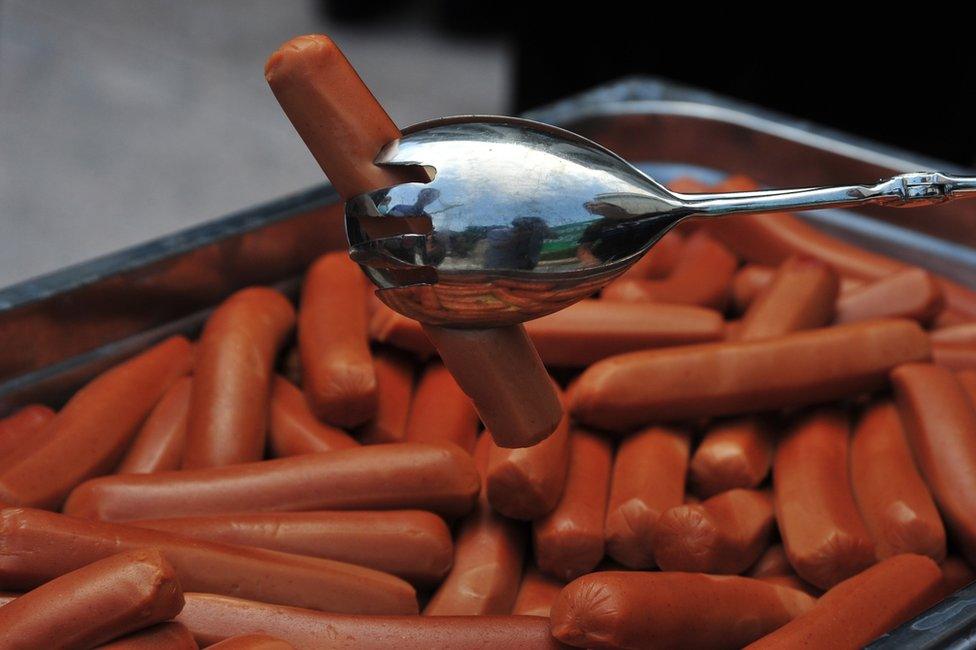
How do you create the flavour of meat without using any meat?
"When meat's raw, it's pretty flavourless," says Prof Puglisi.
"What happens when you cook meat is various molecules that are floating around in the meat start to react with one another. Some create aromas, and some stay in the fat and create flavour."
He's talking about what's called the Maillard reaction. When sugar-rich foods such as meat and bread are cooked, the carbohydrates and proteins inside them caramelise, creating flavour.
So plant protein manufacturers often use ingredients that will caramelise when they're cooked, as well as yeast extract, tomato puree, spices and salt to create a depth of flavour like meat.
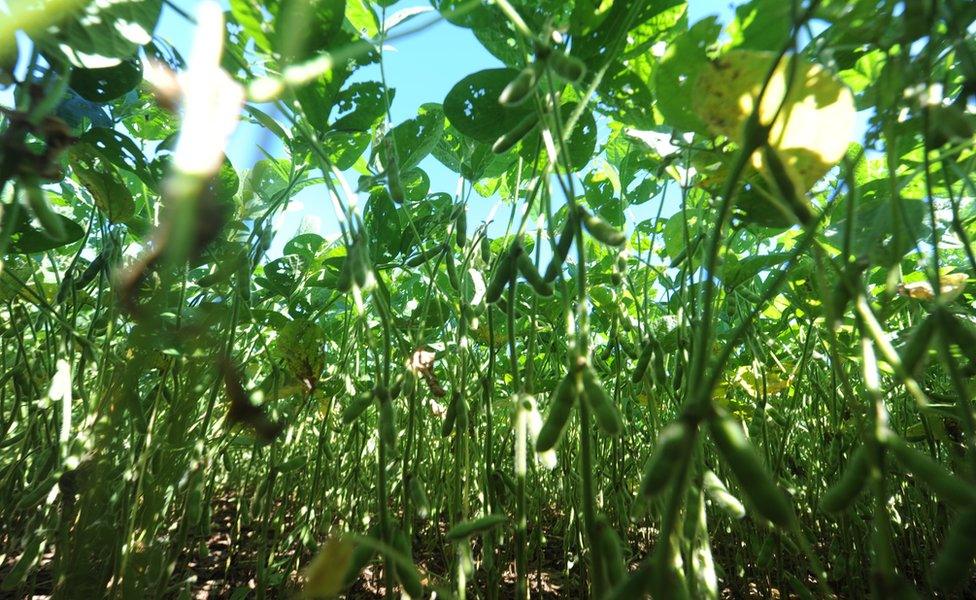
The future
At the moment, most "fake meats" are in the frozen aisle of the supermarket.
But Professor Puglisi thinks meat eaters will only switch to meat alternatives if they see it displayed alongside the real stuff in the chilled aisle.
"They're not in a section where a meat eater is going to buy their products," he says.
Professor Puglisi is himself a meat eater, and he says although the alternatives are pretty good at the moment, they're not enough to convince him to go vegetarian:
"I'll be the first one to tell you we're not there yet."
Find us on Instagram at BBCNewsbeat, external and follow us on Snapchat, search for bbc_newsbeat, external